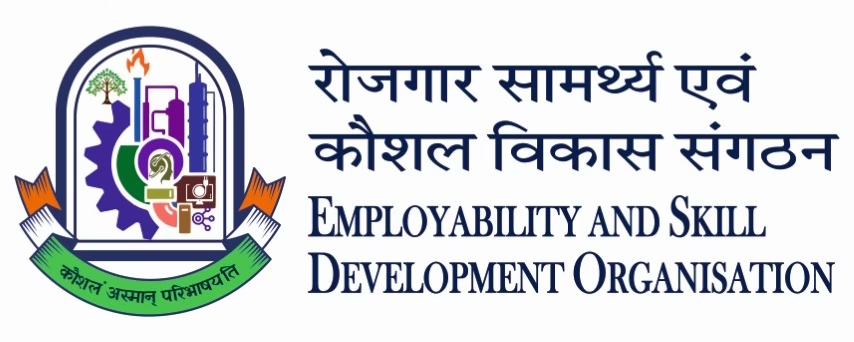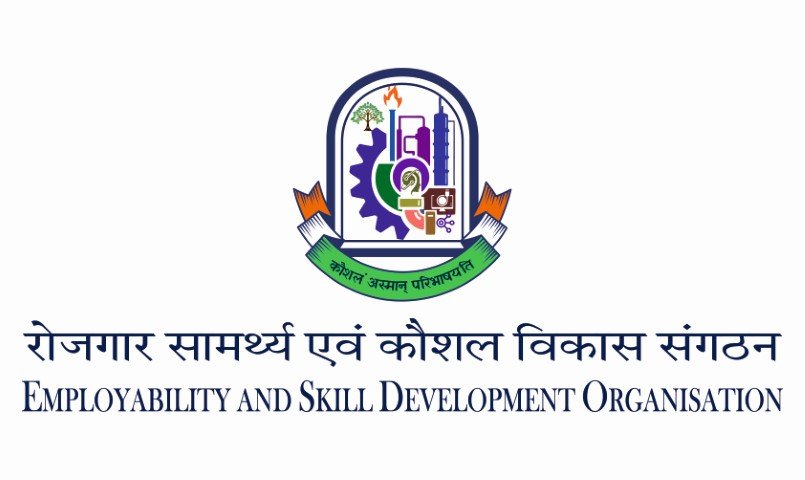EarnED

Empowering Future Professionals with Industry-Ready Skills & Guaranteed Placement
What is EarnED?
EarnED is a flagship placement-linked skill development initiative by ESDO, delivered in partnership with:
- BOAT (Ministry of Education)
- Sector Skill Councils (Ministry of Skill Development and Entrepreneurship)
- Top corporates across India
Targeted at 5th semester undergraduate students, EarnED bridges the gap between academic knowledge and industry needs. It combines aptitude-based career alignment, custom skill certification, and guaranteed placement opportunities, all under a financially subsidized model.
Why EarnED?
Compared to standard EarnEDgrams, EarnED offers:
- Multiple career tracks
- Richer, credit-based curricula
- Up to 5 interview opportunities
- Structured support in resume building, group discussions, and interview techniques
Program Objectives
- Align student aptitude with high-demand career paths
- Offer free career assessments and employer-led shortlisting
- Provide subsidized, certified skill training
- Guarantee placements post-course completion

Eligibility Criteria
- Enrolled in the 5th semester of an undergraduate degree
- Must take the CORE Aptitude Test
- Shortlisted by partner employers for training
- Must complete both 6th semester and skill training to qualify for placement
Program Flow
CORE Aptitude Test
Measures logical, verbal, numerical, and situational reasoning
Employer Shortlisting
Based on aptitude score + student profile
Skill Development Training
Sector-specific modules by certified partners
Placement Facilitation
Up to 5 interview opportunities for confirmed trainees
Career Pathways
Here is an elaboration on each of the five career pathways—Marketing, Banking, Human Resources (HR), Logistics, and Information Technology (IT)—including insights into what each entails and their future demand prospects:
Marketing
Overview
Marketing involves promoting and selling products or services, including market research and advertising. Professionals in this field work to understand consumer behavior, develop brand strategies, manage campaigns, and use digital tools to reach target audiences.
| Key Roles | Skills Required |
|---|---|
| Digital Marketing Specialist | Communication & creativity |
| Brand Manager | Data analysis |
| Content Creator | Social media & digital tools proficiency |
| SEO/SEM Analyst | |
| Market Research Analyst | Consumer psychology |
Future Demand
Marketing is rapidly evolving due to digital transformation. There’s a strong and growing demand for professionals skilled in digital marketing, content strategy, data analytics, and AI-driven marketing. With e-commerce and social media playing larger roles in business, demand is expected to stay high.
Banking
Overview
Banking includes services related to financial transactions, lending, investments, and risk management. The field offers diverse opportunities in commercial banking, investment banking, fintech, and regulatory bodies.
| Key Roles | Skills Required |
|---|---|
| Financial Analyst | Analytical thinking |
| Loan Officer | Financial literacy |
| Investment Banker | Risk management |
| Compliance Officer | Regulatory knowledge |
| Risk Analyst | Strong math and reasoning |
Future Demand
The banking sector is transforming with fintech innovations (e.g., mobile banking, blockchain, robo-advisors). While automation may replace some routine jobs, there will be a steady demand for analytical roles, risk managers, and tech-savvy financial professionals.
Human Resources (HR)
Overview
HR professionals manage an organization’s workforce. This includes recruitment, employee relations, performance management, benefits administration, and organizational development.
| Key Roles | Skills Required |
|---|---|
| HR Generalist | People management |
| Talent Acquisition Specialist | Communication & empathy |
| Learning and Development Manager | Conflict resolution |
| HR Business Partner | Organizational skills |
| Compensation & Benefits Analyst | Knowledge of labor laws |
Future Demand
As workplaces become more diverse and remote, HR’s role is evolving. There will be rising demand for professionals in employee experience, DEI (Diversity, Equity & Inclusion), and HR analytics. Strategic HR roles are expected to grow significantly.
Logistics
Overview
Logistics involves planning, implementing, and controlling the movement and storage of goods. It is essential in supply chain management, ensuring efficient and timely delivery of products.
| Key Roles | Skills Required |
|---|---|
| Supply Chain Manager | Problem-solving |
| Logistics Coordinator | Time management |
| Procurement Analyst | Data analysis |
| Warehouse Manager | Knowledge of ERP systems |
| Freight Operations Manager | Project management |
Future Demand
With the growth of e-commerce, global trade, and automation in warehousing, logistics is seeing robust growth. Demand is high for professionals who can manage tech-enabled supply chains, respond to global disruptions, and optimize cost and time.
Information Technology (IT)
Overview
IT is centered around using computers, networks, and software to process and store information. Careers range from programming and cybersecurity to systems analysis and tech support.
| Key Roles | Skills Required |
|---|---|
| Software Developer | Coding & software development |
| Cybersecurity Analyst | System design |
| Data Scientist | Cybersecurity knowledge |
| Cloud Engineer | Data handling and AI |
| IT Project Manager | Problem-solving |
Future Demand
The IT sector is experiencing explosive growth, driven by AI, cloud computing, big data, IoT, and cybersecurity threats. This field will remain one of the fastest-growing, offering high salaries and global career mobility.
Summary of Future Demand
| Career Path | Future Demand Outlook |
|---|---|
| Marketing | High – especially in digital areas |
| Banking | Moderate to high – fintech-focused |
| Human Resources | Growing – especially in strategic HR |
| Logistics | High – due to global trade & e-commerce |
| Information Technology | Extremely high – across all industries |
Career Path Comparison Chart
| Career Path | Key Skills Needed | Future Demand | Avg. Salary Potential | Best For Students Who... |
|---|---|---|---|---|
| Marketing | Creativity, communication, digital tools, data analysis | High | Moderate to High | Enjoy creative work, social media, analyzing trends |
| Banking | Financial literacy, math, attention to detail, risk management | Moderate to High | High | Like numbers, finance, economics, and structure |
| Human Resources | Empathy, organization, communication, conflict resolution | Growing | Moderate | Are people-oriented, good at mediation and planning |
| Logistics | Planning, tech systems, problem-solving, time management | High | Moderate to High | Like operations, managing processes, and efficiency |
| Information Technology | Programming, problem-solving, data handling, systems thinking | Extremely High | Very High | Love technology, coding, problem-solving, and innovation |
Quick Guidance Based on Personality and Interest:
- Creative and Social? → Marketing
- Analytical and Detail-Oriented? → Banking or IT
- People-Centric and Organized? → Human Resources
- Logical and Process-Oriented? → Logistics
- Tech-Savvy and Curious? → Information Technology
Financial Reimbursement Policy
Stipend Disbursement
In addition to the stipend offered by the hiring company, the Government shall pay around Rs. 4500 p.m. directly to the student.
Subject to
- The student must complete the training course in full.
- The student must obtain confirmation of placement.
- Reimbursement will be made via Direct Benefit Transfer (DBT) to the student’s registered bank account.
Institutional Responsibilities
Participating academic institutions are required to:
- Promote awareness of the NexGen initiative among eligible students.
- Facilitate aptitude test conduction on campus or remotely.
- Provide academic verification of 5th/6th semester status when requested.
- Support students through the transition to training and employment.
Program Governance
The NexGen initiative shall be administered by ESDO, in partnership with:
- Skill councils
- Top Indian and MNC Companies
- Approved Academic Institutions
Oversight, compliance, and grievance redressal will be managed by a centralized program office.
Benefits
Benefits to Students
Zero-Cost Aptitude Testing
Students receive a comprehensive career-alignment assessment at no cost.
Customized Career Pathways
Courses are aligned with the student’s aptitudes and chosen field—Marketing, Banking, HR, Logistics, or IT.
Guaranteed Job Placement
Placement as a trainee is assured upon successful program completion.
Financial Support
Government DBT significantly reduces the financial burden.
Career-Readiness
Industry-designed curriculum ensures students are equipped with relevant, practical skills.
Early Career Entry
Students can enter the workforce immediately after their 6th semester, accelerating career growth.
Benefits to Academic Institutions
Increased Student Employability
Enhanced placement outcomes strengthen the institution’s reputation and ranking.
Industry Collaboration
Partnerships with hiring companies and training providers deepen industry-academia integration.
No Cost Burden on Institutions
The program infrastructure (aptitude tests, training, and stipends) is externally funded.
Higher Student Engagement
Career-aligned pathways increase student motivation and program participation.
Institutional Recognition
Participating colleges may receive formal recognition or accreditation as NexGen affiliates.
Support Resources
Institutions will have access to toolkits, support desks, and performance dashboards to monitor student progress.
National Benefits
The NexGen program serves as a strategic intervention with far-reaching impact on India’s socio-economic development. Its benefits to the nation include:
Strengthening Human Capital
By aligning student capabilities with industry needs, the program enhances the quality and relevance of India’s emerging workforce.
Reducing Youth Unemployment
With guaranteed placement upon course and semester completion, the program directly addresses the gap between education and employment.
Boosting Economic Productivity
A skilled and job-ready workforce accelerates productivity across key sectors including IT, Banking, Logistics, Marketing, and HR.
Encouraging Industry-Academia Collaboration
Institutional partnerships with private sector employers foster innovation, real-world training, and demand-driven curricula.
Supporting Inclusive Development
The subsidized model ensures students from all socio-economic backgrounds can participate, promoting equitable access to opportunities.
Promoting Regional Growth
By integrating institutions across urban and semi-urban areas, the program distributes job creation more evenly across the country.
Enhancing National Competitiveness
NexGen helps position India as a global hub for digitally skilled, industry-ready talent—contributing to the goals of initiatives such as Skill India, Digital India, and Atmanirbhar Bharat.
Skill courses
| NEXGEN BANKING | |||
|---|---|---|---|
| No. | Course Name | Credit | Hours |
| 1 | Banking Operations | 4 | 60 |
| 2 | Capital Markets and Financial Services | 4 | 60 |
| 3 | Indian Banking and Financial System | 0.5 | 7 |
| 4 | Rural and Cooperative Banking | 0.5 | 7 |
| NEXGEN SOFTWARE | |||
|---|---|---|---|
| No. | Course Name | Credit | Hours |
| 1 | Introduction to PySpark | 0.5 | 7 |
| 2 | Software Engineering with UML | 0.5 | 8 |
| 3 | Big Data Analytics | 1 | 30 |
| 4 | Computer Application in Business | 3 | 60 |
| 5 | Database Management System | 3 | 60 |
| NEXGEN MARKETING | |||
|---|---|---|---|
| No. | Course Name | Credit | Hours |
| 1 | Advertising and Public Relations | 0.5 | 7 |
| 2 | Integrated e-marketing | 0.5 | 7 |
| 3 | Digital Marketing | 1 | 15 |
| 4 | Marketing Management | 4 | 60 |
| 5 | Business Communication Skills | 3 | 45 |
| NEXGEN LOGISTICS | |||
|---|---|---|---|
| No. | Course Name | Credit | Hours |
| 1 | Green Logistics and Supply Chains | 0.5 | 7 |
| 2 | International Trade Logistics | 0.5 | 7 |
| 3 | Materials Management | 0.5 | 7 |
| 4 | Foreign Trades | 1 | 15 |
| 5 | Insurance Management | 3 | 45 |
| 6 | International Trade and Business | 3 | 45 |
| NEXGEN HRM | |||
|---|---|---|---|
| No. | Course Name | Credit | Hours |
| 1 | Human Resource Management | 1 | 15 |
| 2 | Compensation Management | 4 | 60 |
| 3 | Human Resource Information System | 4 | 60 |

